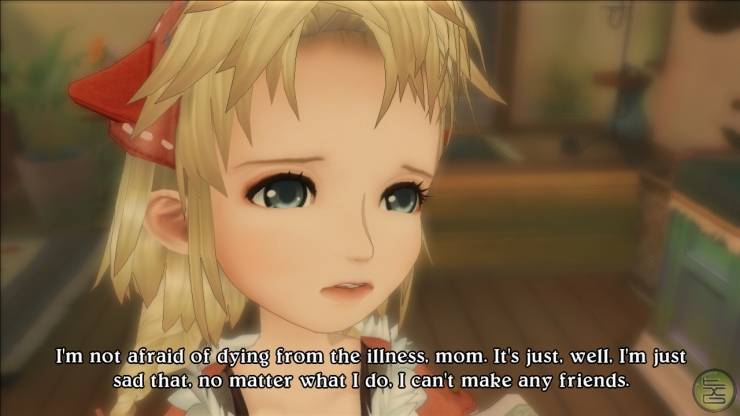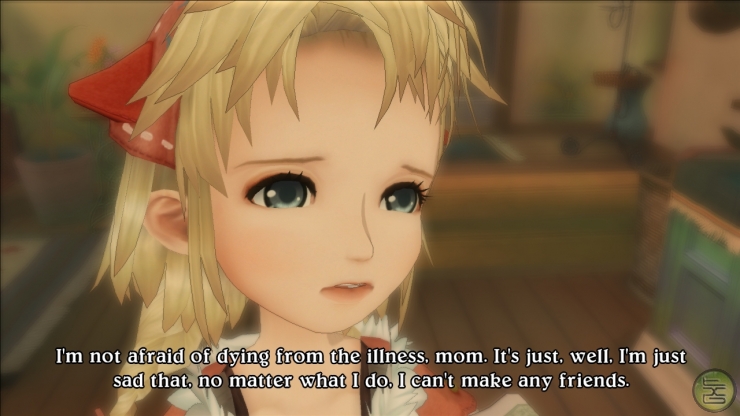Editor’s note: Ben shares his thoughts on the synergy between storytelling and acting in video games. Acting can elevate a game with a sub-par story, but it can also ruin a game with a great story. He also laments the general lack of good stories in video games, and I share this sentiment. – Jay
 As a child, I liked to read a lot. I quickly progressed from stories in which thrilling characters such as Tom and Jane threw the ball for Spot, to books by authors such as Roald Dahl. The recently released adaption of Fantastic Mr. Fox got me thinking back to my childhood and remembering the amazing stories told in children’s books. In contrast, video games (which sometimes have teams of writers at their disposal) are very rarely able to craft stories which actually have heart and soul. Maybe it’s because books are able to focus so closely on the story; they don’t have to stop mid-chapter and send the reader to collect a sandwich from the other side of the world.
As a child, I liked to read a lot. I quickly progressed from stories in which thrilling characters such as Tom and Jane threw the ball for Spot, to books by authors such as Roald Dahl. The recently released adaption of Fantastic Mr. Fox got me thinking back to my childhood and remembering the amazing stories told in children’s books. In contrast, video games (which sometimes have teams of writers at their disposal) are very rarely able to craft stories which actually have heart and soul. Maybe it’s because books are able to focus so closely on the story; they don’t have to stop mid-chapter and send the reader to collect a sandwich from the other side of the world.
Games seem to have an inherent problem with creating a rich and compelling narrative. This issue, in my opinion, stems from the fact that games have to pad out their stories, so that the player feels that they get their money’s worth from the piece of interactive entertainment they just purchased.
 My favorite example of a game that had a fantastic story, but was criticized for its length, is Heavenly Sword. I bought the game at lunchtime, went home, sat down for four hours, and then stood up, having finished the game. I didn’t feel cheated in the slightest. This was due to the fact that the story in Heavenly Sword was, in my mind, perfect. It had all the necessary twists and turns and never seemed to let up the pace until you plunged your blade into the final boss. This completed a tale that still sticks in my mind until this day.
My favorite example of a game that had a fantastic story, but was criticized for its length, is Heavenly Sword. I bought the game at lunchtime, went home, sat down for four hours, and then stood up, having finished the game. I didn’t feel cheated in the slightest. This was due to the fact that the story in Heavenly Sword was, in my mind, perfect. It had all the necessary twists and turns and never seemed to let up the pace until you plunged your blade into the final boss. This completed a tale that still sticks in my mind until this day.
However, it was the acting in this game that really stuck with me. The perfectly captured performance of Andy Serkis as King Bohan is, in my opinion, the best portrayal of a villain in a video game of all time. His performance is subtle, nuanced, and perfectly pitched for the nature of the story. The acting in this game truly enhances the story and helps move it along.
 A good example of a video game that was hindered by poor acting is Eternal Sonata. This game genuinely intrigued me with its premise and a story that sounded far too exciting to pass up on. A game set in a dreamscape created by Frederic Chopin on his deathbed? Sounds pretty intriguing, doesn’t it? However, all the great work done by the writers on this game is rapidly undone by the atrocious voice acting. Honestly, I am now five hours into Eternal Sonata, and I don’t think that I will continue playing it. The voice track in the game is appalling. It’s filled with characters that sound like they fell off the bandwagon of rejected anime stereotypes, complete with voices so high and spunky that I fear for my sanity every time I complete a battle and hear the same repetitive voice clip. If a game has a good story, I wish the developers wouldn’t spoil it with terrible characterizations.
A good example of a video game that was hindered by poor acting is Eternal Sonata. This game genuinely intrigued me with its premise and a story that sounded far too exciting to pass up on. A game set in a dreamscape created by Frederic Chopin on his deathbed? Sounds pretty intriguing, doesn’t it? However, all the great work done by the writers on this game is rapidly undone by the atrocious voice acting. Honestly, I am now five hours into Eternal Sonata, and I don’t think that I will continue playing it. The voice track in the game is appalling. It’s filled with characters that sound like they fell off the bandwagon of rejected anime stereotypes, complete with voices so high and spunky that I fear for my sanity every time I complete a battle and hear the same repetitive voice clip. If a game has a good story, I wish the developers wouldn’t spoil it with terrible characterizations.
 Gears of War is not particularly famed for its story, but has a character voiced by John DiMaggio. This pays dividends to the game. He lends some emotion to the role, and does so somewhat admirably, with regard to the material he has to work with. The story in Gears may not win any awards, but the performances give it the feel of a big budget, Michael Bay action film. Sure, it has paper thin characterization, but it also features solid action and explosive set pieces.
Gears of War is not particularly famed for its story, but has a character voiced by John DiMaggio. This pays dividends to the game. He lends some emotion to the role, and does so somewhat admirably, with regard to the material he has to work with. The story in Gears may not win any awards, but the performances give it the feel of a big budget, Michael Bay action film. Sure, it has paper thin characterization, but it also features solid action and explosive set pieces.
So, game developers, I give you this bright spark of an idea: Either craft a story with care and hire voice actors that suit the roles that they are playing, or craft a game filled with memorable moments that will stick to the player long after they finish it. At the very least, hire Nolan North. At least he will give your game an identifiable, “everyman” main character.


